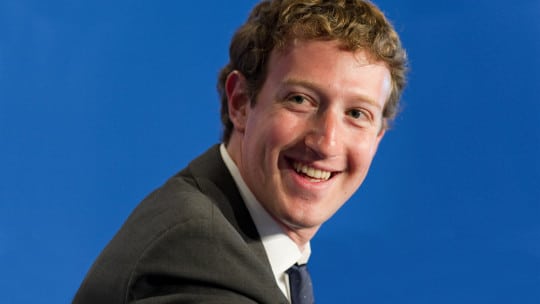
Mark Zuckerberg thought he was providing a clear definition of terms, but in the end he muddied the waters.
Merriam-Webster defines misinformation as "incorrect or misleading information." The definition of misinformation has gotten blurry in some circles, including those surrounding the Facebook chief. To Zuckerberg, intent is critical to the definition.
The misinformer, to Zuckerberg, believes the incorrect information he/she is spreading to be true. An example: Have you told anyone the human eye unaided can see the Great Wall of China from space? NASA says it can't be, but if you thought it could and told someone, you've spread misinformation, according to Zuckerberg's thinking.
Making matters worse for Facebook and himself, Zuckerberg, while trying to explain his earlier remarks about Holocaust deniers, used the word "misinformation" instead of "disinformation." Merriam-Webster defines disinformation as "false information deliberately and often covertly spread (as by the planting of rumors) in order to influence public opinion or obscure the truth."
Back to the Great Wall example, if you know the human eye unaided can't see the Great Wall from space and you tell someone the Wall is visible from space, you're spreading disinformation. You're lying with intent, saying something is true you know to be false.
A Fine Distinction
The distinction between misinformation and disinformation is at the heart of Zuckerberg's thinking about why Holocaust deniers' material can remain on Facebook. He's likely debated this thorny question with his senior team.
"At the end of the day," Zuckerberg said during an interview with Kara Swisher of Recode, "I don't believe that our platform should take [material from Holocaust denials] down because I think there are things that different people get wrong."
He then mentioned intent in his explanation. "I don't think that they're intentionally getting it wrong...as abhorrent as some of those...are, I think the reality is also that I get things wrong when I speak publicly...I just don’t think that it is the right thing to say, 'We’re going to take someone off the platform if they get things wrong, even multiple times.' What we will do is we’ll say, 'OK, you have your page, and if you’re not trying to organize harm against someone, or attacking someone, then you can put up that content on your page, even if people might disagree with it or find it offensive.'”
The Deluge
Once the Recode interview went live July 18, critics besieged Zuckerberg on social media. They charged Holocaust denial is disinformation, not misinformation, and should be banned from Facebook.
Not long after, Zuckerberg attempted to walk back his remarks, a move as old as PR itself. It's crisis management 101.
In fact, with President Trump walking back his remarks about placing more trust in Russian leader Vladimir Putin than in the U.S. intelligence community and Elon Musk's walk back of tweets about one of the Thai cave divers being a pedophile, we've seen more prominent people walking backward this week than at any time since Michael Jackson started moonwalking.
But back to Zuckerberg; within hours of the interview going live, Swisher received an email from Zuckerberg that she published quickly:
I enjoyed our conversation yesterday, but there’s one thing I want to clear up. I personally find Holocaust denial deeply offensive, and I absolutely didn’t intend to defend the intent of people who deny that.
Our goal with fake news is not to prevent anyone from saying something untrue — but to stop fake news and misinformation spreading across our services. If something is spreading and is rated false by fact checkers, it would lose the vast majority of its distribution in News Feed. And of course if a post crossed line into advocating for violence or hate against a particular group, it would be removed. These issues are very challenging but I believe that often the best way to fight offensive bad speech is with good speech.
I look forward to catching up again soon.
Mark
Oh Sister, Where Art Thou?
Even Zuckerberg's sister, Randi Zuckerberg, defended her brother's remarks. “Banning Holocaust deniers from social media will not make them go away,” she said in a statement to CNN. “Those bent on lying, sowing misunderstanding and breeding hate will never be truly silenced."
Randi's second sentence muddied the waters further, as did her brother's late-day email to Swisher. Randi's second sentence describes disinformation and intentional lying, which Mark wants removed from Facebook. Mark, in his email, also conflates misinformation with intentional lying and then, unfortunately, adds the term "fake news" to the mix. Fake news should be defined as a political term for denying anything a politician doesn't agree with.
Are we crystal clear now?
Seth Arenstein is editor of PR News. Follow him: @skarenstein
